It was a suitably ignominious exit for a tyrant defined by conspicuous brutality and wealth. In the early hours of Sunday, Bashar al-Assad scuttled out of his presidential palace in Damascus under cover of both darkness and his Kremlin sponsors.
The 59-year-old despot brought down the curtain on five decades of his family’s murderous rule of Syria by boarding a waiting jet to Russia’s Hmeimim airbase on the country’s Mediterranean coast – the same military installation used by Moscow to mercilessly bomb rebel-held towns and cities as it propped up the Assad regime.
As Assad’s aircraft flew, its pilots switched off the jet’s transponder to hide its destination, allowing the fleeing president to then be furtively transferred to a Russian military plane laid on to bring him to Moscow and a new life in luxuriant, if politically impotent, exile.
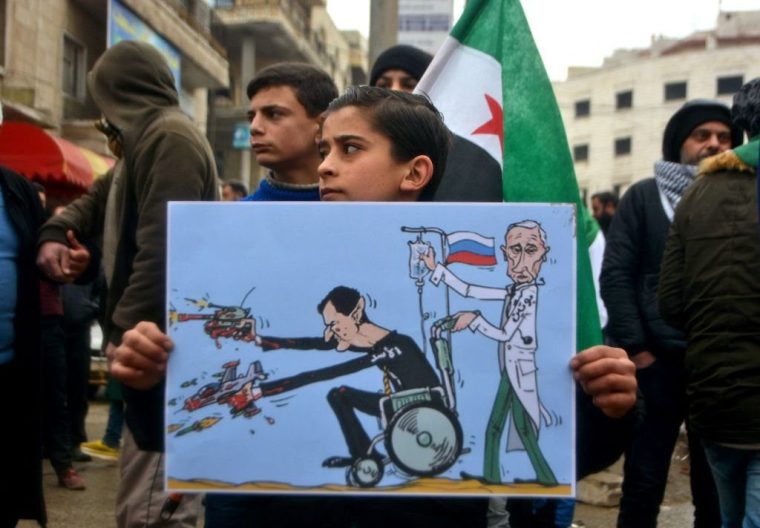
Within hours of his arrival in the Russian capital the Kremlin announced that Assad, whose blood-soaked regime killed hundreds of thousands of its own people and put 1.2 million Syrians in prisons whose cruelties included 72 separate methods of torture, had been granted asylum on “humanitarian grounds”.
The decision was made on the personal direction of Vladimir Putin, according to Russian media.
Assad joined his wife Asma, whose diagnosis with an aggressive form of leukaemia was revealed in May, and their three adult children.
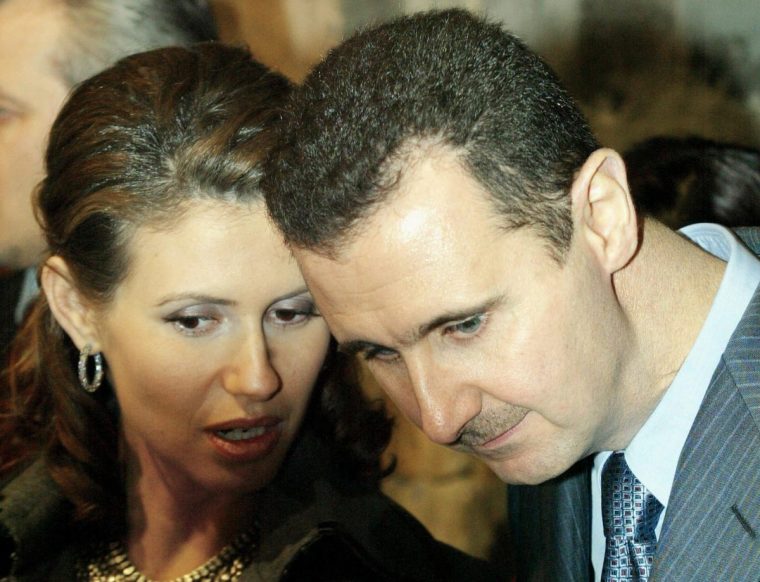
The precise whereabouts of the Assads were this weekend unknown amid speculation that they are holed up either in a well-heeled Moscow suburb – potentially as “guests” of Kremlin in a government villa – or in one of a portfolio of luxury properties in the city quietly acquired on their behalf by members of the wider Assad family.
But for all its clandestine qualities, the arrival in Moscow of the Assad clan, including it would seem Asma’s UK-based parents after their modest pebble-dashed house in west London was left empty this week, had long been planned for.
An exile long in the planning
Diplomatic sources told The i Paper that the Assads had laid the groundwork for an alternative existence in Russia over a period of years, increasingly embracing not only the Putin regime but also the practicalities of a life in Moscow during multiple visits.
It is understood that Asma, who had previously been successfully treated for breast cancer, may have been receiving some of her treatment for acute myeloid leukaemia in Moscow in recent months after withdrawing from public life in Syria.
The Assads’ oldest child, 24-year-old Hafez, was last month awarded a doctorate in mathematics from the prestigious Moscow State University after defending a 98-page thesis written in Russian to an august academic panel. In his closing remarks, Hafez, who had previously studied for his undergraduate degree in Moscow, went out of his way to pay tribute to the “martyrs of the homeland”, particularly the Syrian armed forces.
One Western diplomat said: “Like any autocrat, [Bashar] Assad will have planned for the possibility of being forced from power at a time not of his choosing. Money will have been secreted abroad and an ecosystem of properties and connections put in place. And now he and his wife have finalised their deal with the devil. Russia was his and Asma’s best and only choice – a life in Moscow was their insurance policy to ensure they would survive even after destroying their own country.”
Indeed, the Assads and their entourage will have no problem paying their way should they seek to immerse themselves in the gilt-edged neighbourhoods, eateries and hang-outs of the Muscovite elite. They bring with them the proceeds of a breathtakingly audacious kleptocracy which has seen the Assad clan dramatically enrich itself even as the Syrian economy shrank by 85 per cent during the 13-year civil war.
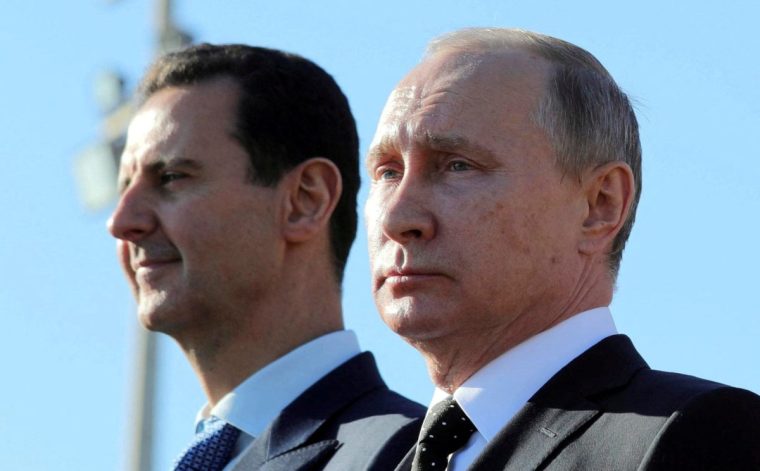
According to a 2022 report by the US State Department, the Assad family fortune is estimated to be worth at least $2bn (£1.6bn). Other estimates, some of them suggested to be informed by data from British intelligence, have put the figure at as much $16bn in cash and some 200 tons of gold.
In its report to Congress, the State Department said the Assads’ funds had been acquired from “illicit economic activities, including smuggling, arms trading, drug trafficking, and protection and extortion rackets”. In turn, they had succeeded in ensuring their assets were “spread out and concealed in numerous accounts, real estate portfolios, corporations and offshore tax havens”.
Crucially, Asma, who grew up in Britain and spent her early career working in investment banking, was identified as a key figure in the administration of the criminal proceeds of her husband’s regime, actively “cultivating a network” to conceal the family’s riches. The locations where the wider Assad clan are known to have had properties range from London’s Mayfair, where Bashar’s uncle Rifaat – a former key figure in the regime’s repressions – owned a mansion worth £27m, through to villas in Provence and Dubai.
Skyscrapers and mansions: The Assads’ Moscow property portfolio
The result is that the Assads arrive in Moscow with the wherewithal to match the swagger, should they wish or be able to do so, of even the wealthiest oligarchs to have profited from the Putin regime.
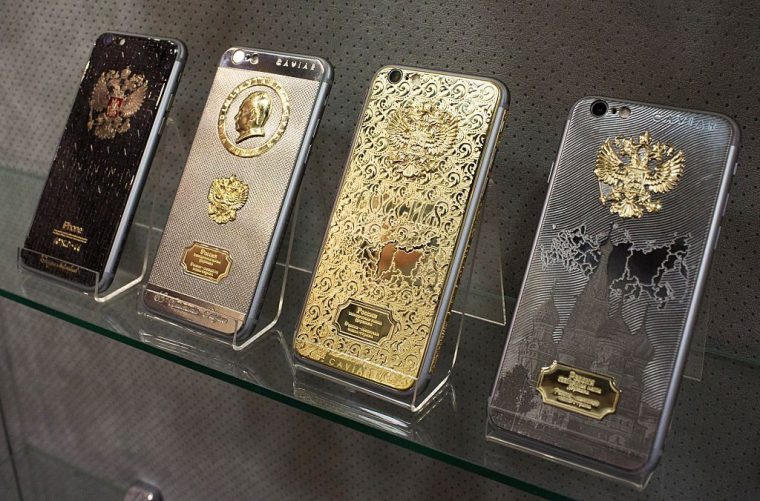
According to investigations by anti-corruption think-tank Global Witness, Bashar’s extended family owns as many as 20 flats in Moscow City, a conglomeration of glinting skyscrapers in the west of the capital built to show off Russia’s wealth and home to corporations and wealthy Muscovites. The majority of the £40m portfolio, which is linked to the powerful business family headed by Bashar’s uncle Mohammed Makhlouf, is in the City of Capitals complex – a twin-towered apartment block which was once Europe’s tallest building and offers expensively-furnished accommodation dripping with chandeliers and sweeping views of Moscow.
Indeed, the choice of properties associated with the Assad name indicates a certain ostentatiousness.
But while it cannot be ruled out at that the Assads will spend at least some time amid the futuristic glass and steel edifices of Moscow City, the fact that the district has been successfully targeted by Ukrainian drones during the ongoing war means permanent residence in the area may be deemed too high a security risk either by the family themselves or their Russian chaperones.
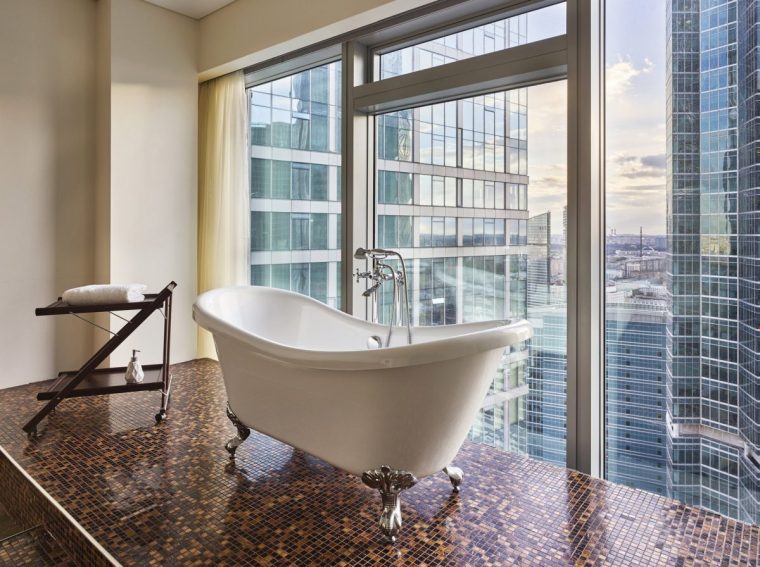
Sources suggested it was instead more likely that a residence will have been procured in Rublyovka, the western suburb dubbed “Moscow’s Beverley Hills”. This was originally the site of the summer dachas of Soviet leaders from Lenin onwards and is now populated with mega-mansions of the Russian elite offering such amenities as temperature-controlled wardrobes for fur coats and storage rooms for gifts. Putin’s own sprawling country residence, Novo-Ogaryovo, sits nearby, although the Kremlin this week appeared to signal that he would be in no hurry to invite the Assads to dinner.
Luxury – but how much influence?
Indeed, the proximity of the Russian leader – and the question of whether he will maintain meaningful contact with the now deposed president of Syria – goes to the heart of what the future holds for the Assads and whether their undoubted ill-gotten wealth will translate into influence, either among their new neighbours or back in their ruined homeland.
Gennady Gudkov, a former Russian MP and KGB officer who is a critic of Putin, said the Assads now fit into a long-standing pattern of authoritarian leaders within the Russian or Soviet orbit who have found themselves taking comfortable shelter in the woods of Rublyovka or elsewhere. They have of late included Viktor Yanukovych, the Ukrainian president overthrown in the 2014 Maidan Revolution, and ex-Kyrgyz leader Askar Akayev, who “lives comfortably” in Moscow after fleeing the former Soviet satellite state in 2005.
Gudkov said: “This is an old Kremlin tradition to give refuge to ousted leaders in Moscow. For Assad, I don’t think there are more leaders willing to let him in, besides Putin.”
But beyond making good on what one Kremlin apparatchik this week described as Russia’s unshakeable promise not to “betray friends in difficult positions”, observers pointed out that the Assads represent a different category of blow-in from Moscow’s defunct placemen from Eastern Europe, the Caucasus and Central Asia.
As the Western diplomat put it: “I can’t see Asma Assad, or even Bashar, wanting to spend much time eating borscht with the likes of Yanukovych or Akayev. They are cut from different cloth to the usual Kremlin puppets. The main question about the Assads is whether they now slowly sink from view or retain some sort of profile. Their days of wielding power are gone, but I also believe that we haven’t heard the last of them. Notwithstanding her health problems, Asma in particular has a talent for reinvention.”
Other observers pointed out that Bashar, who had visited Moscow as a child with his father in the 1980s, is returning to city changed by the cronyism of the Putin era.
Alexander Cherkasov, chairman of the Nobel Peace Prize-winning human rights group Memorial, told The i Paper that life in Russia has changed since the Assad family visited Moscow in the 1980s.
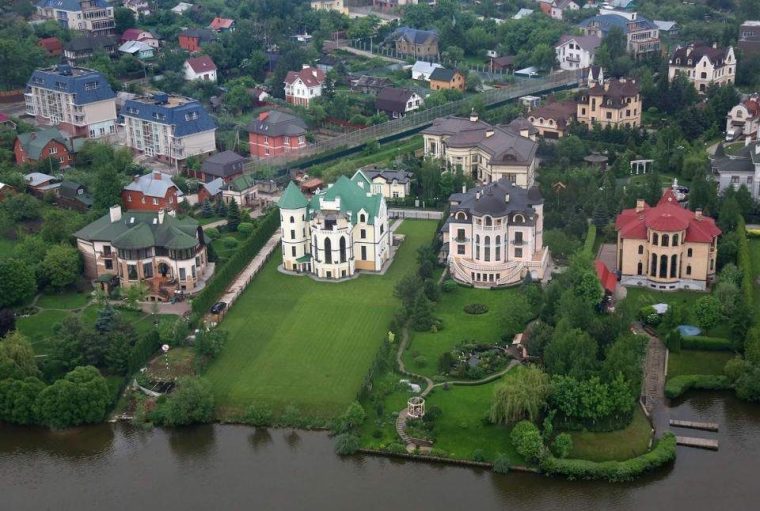
He said: “Students were brought to the street to wave, welcoming corteges with Hafez al-Assad, his son and other Middle Eastern dictators in the 1980s. Now dictator [Bashar] Assad, who of all exiled foreign politicians to Moscow has a record in the number of crimes committed against humanity, can try to be a charmer in Putin’s shrinking court.”
‘A talent for reinvention’
Indeed, there are some signs that the Assads may intend to attempt to remain in the public eye.
The family have not been shy about trying to shape their public image, with a dressed-down Bashar and Asma recently appearing in photographs alongside Hafez and his preppy-chic siblings, Zain, 22, and 21-year-old Karim as they walked amid the ruins of the city of Aleppo in much the same manner as tourists strolling through Venice or Paris. An Instagram page claiming to be Zain’s official account, featuring images of Bashar’s daughter alongside her brothers and her parents, this week remained active.
Asma has in the past also sought to conjure up an image of wholesome family life. In 2012, as the civil war was in its early years and claiming the first of its countless lives of children and their families, Asma used Facebook to offer a glimpse of domesticity. She wrote: “Hafez, 14, shares his mother’s love for technology and computing, and has become as tall as his father. He is learning Russian. Karim, 11, is as active as his mother, and is the house sports star. He is learning Chinese. Zein, 12, is learning Spanish. She has a strong, confident and warm personality. Just like her parents.”
Such words betray what those who have met Asma describe as an ability to invent narratives with a keen presentational nous. The daughter of Syria-born Harley Street cardiologist Fawaz Akhras and his wife Sahar, Asma had previously courted the West with purported plans to liberalise and reinvent Syria – notoriously resulting in Vogue magazine running a profile piece in 2011 which declared her to be “a rose in the desert”, and the Assads themselves to be “wildly democratic”.
These days she seems more comfortable with belligerent totalitarianism. Speaking at Hafez’s graduation from Moscow State University last year, Asma brazenly pledged fealty to the Kremlin and support for the war in Ukraine, saying: “Our Russian friends did not hesitate when they stood with us in our war. So we did not hesitate, and we won’t hesitate, to stand with them in their war.”
A member of the Syrian opposition in London said that such protestations were evidence of the ruthlessness at the heart of the Assad clan. The source said: “The Assads are opportunists who stand for nothing other than their own enrichment and survival. I don’t expect them to go quietly, they will try to charm their Russian hosts and exploit their new situation as best they can.”
And yet, set against such chutzpah, is the fact that the Assads, whose fortune is at least in part widely believed to be based on profits made from their regime’s involvement in the production and sale of the addictive amphetamine Captagon, have been stripped of their relative autonomy in Damascus and are now reliant on the protection and sponsorship of the Kremlin for their daily lives.
Experts point out that such will be the lingering animus against the Assad regime in Syria and beyond that the family are likely to need formidable security arrangements even within a country as tightly controlled and surveilled as Russia.
The Syrian opposition figure said: “The Assads have too many enemies. Even in Moscow they will have to look over their shoulders. There are few who would weep if vengeance caught up with them.”




'President Musk' is flexing his muscles and revealing how weak Trump is